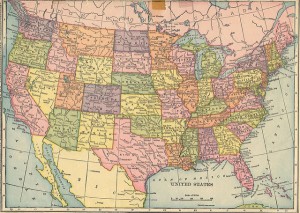The U.S. Department of Labor increased penalties and fines against employers/carriers. Specifically, employers/carriers who fail to report first injuries or final payments are now facing an increased fine. Further, employers now face an increased penalty for discrimination. To quote an e-mail I received this morning from the U.S. DOL: To implement the Federal Civil Penalties Inflation Adjustment Act Improvements Act of 2015 (Inflation Adjustment Act), the Department of Labor) has published a department-wide interim final rule (IFR) adjusting its penalties for inflation. The IFR affects the following penalties assessed by the Office of Workers’ Compensation Programs (OWCP) under the Longshore and Harbor Workers’ Compensation Act (LHWCA): 20 CFR 702.204 Failure to file first report of injury or filing a false statement or misrepresentation in first report. Increase from the current maximum of $11,000 to $22,587. 20 CFR 702.236 Failure to report termination of payments. Increase from the current $110 toRead more
Compensation “Forfeiture” Needs a District Director Determination
Today’s public service announcement concerns the unilateral suspension of an injured worker’s compensation benefits on the grounds of “forfeiture.” Injured workers are sometimes told by their insurance adjuster that the worker “forfeited” the right to compensation by failing to report earnings. Typically, this occurs after the adjuster sent the worker a form called the LS-200, Report of Earnings. Then, without seeking a district director’s determination, the adjuster suspends benefits. This is wrong. There is a procedure for the “forfeiture” of benefits. When the carrier has not followed the procedure, they have violated the law. The carrier is then subject to penalties and interest. Statutory Basis for Forfeiture: Forfeiture is a real thing. The statutory basis for forfeiture can be found in Section 8(j) of the Longshore and Harbor Workers’ Compensation Act. Section 8(j) states: (j)(1) The employer may inform a disabled employee of his obligation to report to the employerRead more
Pain Meds Still Owed Despite Marijuana Use, Says 11th Cir.
In a new unpublished Longshore case, the Eleventh Circuit upheld a decision that pain medicine was reasonable and necessary treatment. In 2006, the claimant was injured while working for Federal Marine Terminals. He subsequently underwent three back surgeries—two were unsuccessful. In 2009, the claimant began seeing a pain management physician who prescribed narcotics pain medication. The parties reached a partial settlement in 2010. By “partial,” I mean that the parties settled the indemnity portion of the claim but left the medical benefits open. By leaving medical benefits open, the employer and carrier remained liable for medical benefits—like the pain medicine. Subsequently, an issue arose regarding the payment of additional pain medicine. The employer and carrier didn’t want to pay for the narcotics. In part, the employer and carrier argued that the claimant’s use of marijuana rendered the continued narcotic therapy unreasonable. The case proceeded to a formal hearing, after whichRead more
Defense Orthopedic Expert Questions
Claimants often ask me about the scope of an orthopedic defense medical examination. What is the doctor looking at? What is the doctor looking for? Is the doctor just a hired gun? Typically, the same questions are asked to every orthopedic defense expense. These questions define the scope of the examination. As such, it is good for a Longshore or Defense Base Act claimant to know what the insurance adjuster or defense lawyer asked the doctor. Without further ado, here is a list of typical defense medical examination questions and directions. Please identify all orthopedic symptoms of which Claimant currently complains. Please provide your diagnosis of Claimant’s current orthopedic condition(s), if any. Please address whether Claimant’s orthopedic diagnosis or diagnoses are related to a work incident. Please address whether Claimant’s orthopedic conditions were caused by an overcompensation injury. Please address any non-work-related cause(s) of Claimant’s current orthopedic conditions. Please adviseRead more
Wage Earning Capacity When Claimant Owns a Business
In Longshore and Defense Base Act cases, how do courts address post injury wage earning capacity when the injured worker owns a business? It all depends on the efforts expended by claimant in his business. To quote the Benefits Review Board: An employee’s earnings from self-employment may establish his wage-earning capacity. Sledge v. Sealand Terminal, 16 BRBS 178, 181 (1984); Mitchell v. Bath Iron Works Corp., 11 BRBS 770, 779 (1980). However, profit from ownership is not included in determining earning capacity. Seidel v. General Dynamics Corp., 22 BRBS 403 (1989). Thus, an administrative law judge should determine whether income from self-employment is the result of an ownership interest or claimant’s personal services; where a claimant’s business income is the direct result of the claimant’s “personal management or endeavor,” or the claimant performs such extensive services for the business that the income represents salary rather than profits, the income shouldRead more
Ninth Circuit Addresses Section 13 and Medical Permanency
The Ninth Circuit just published a new Longshore decision addressing the statute of limitations and medical permanency. I suspect that this decision, SSA Terminals and Homeport Ins. Co. v. Carrion, No. 13-72929, -72948 (9th Cir. 2016), will be considered one of the most important Longshore decisions of 2016. The opinion’s Summary states: The panel denied an employer/insurer’s petition for review, and granted a claimant’s cross-petition for review for a decision by the Benefits Review Board, in an action brought by a claimant seeking disability benefits under the Longshore and Harbor Workers’ Compensation Act. The administrative law judge (“ALJ”) determined that the claimant’s claim was timely filed under the Longshore Act, and determined that the disability was temporary because the claimant was contemplating knee replacement surgery that would likely alleviate his symptoms. The Benefits Review Board affirmed. The panel held that the claimant timely filed his claim against his employer. InRead more
Some Thoughts on Longshore and Defense Base Act Venue
One of the easiest ways to contribute to a law blog is to look at your e-mail outbox. What issues have been discussed or litigated lately? In this post, I am going to share a few thoughts about venue–the location of an injured worker’s formal hearing. Keep two distances in mind: 75 miles and 100 miles. The relevant statutes and regulations use both distances, but for different reasons. First, formal hearings typically take place within 75 miles of the claimant’s residence unless there is good cause for having the formal hearing elsewhere. See 20 C.F.R. § 702.337. The 75-mile rule is not an absolute edict; it is a guideline. The 100-mile rule applies to witnesses who are not parties to the litigation. Basically, courts cannot require non-party witness to travel more than 100 miles. Section 24 of the Longshore and Harbor Workers’ Compensation Act provides a 100-mile jurisdictional limit forRead more
Are Longshore or DBA Benefits Taxable?
It’s tax season. Time to talk about a question I am asked in every single case: are Longshore or Defense Base Act workers’ compensation benefits taxable? Take a look at IRS Publication 525, which discusses taxable and nontaxable income. On page 19, you will see a section titled, “Workers’ Compensation.” It says: Workers’ Compensation Amounts you receive as workers’ compensation for an occupational sickness or injury are fully exempt from tax if they are paid under a workers’ compensation act or a statute in the nature of a workers’ compensation act. The exemption also applies to your survivors. The exemption, however, does not apply to retirement benefits you receive based on your age, length of service, or prior contributions to the plan, even if you retired because of an occupational illness or injury. If part of your workers’ compensation reduces your social security or equivalent railroad retirement benefits received, thatRead more
Longshore Psych Injuries Don’t Need a Physical Component
In claims filed under the Longshore Act, there is no requirement that psychological injuries be accompanied by actual or threatened physical harm. So says the Fourth Circuit in its new unpublished decision, Ceres Marine Terminals, Inc. v. Director, OWCP. In a prior post, I wrote about the oral arguments in this case, and how employers and carriers approach psychological injury claims under both the Longshore Act and the Defense Base Act. The facts of this case are tragic. The claimant was operating a forklift when he struck and killed a co-worker. The claimant testified that the co-worker was bleeding from her mouth. Her leg was wrapped around the the axle of the forklift. While waiting ten minutes for the ambulance to arrive, the claimant stood ten to fifteen feet away from the co-worker. Once the co-worker was transported to the hospital, the claimant spent the day explaining the accident toRead more
Disclosing Defense Attorney’s Time Sheets in Fee Disputes
Attorney fees are heavily disputed in Defense Base Act and Longshore and Harbor Workers’ Compensation Act claims. In most cases, the injured worker’s fees shift from the worker to the employer and carrier. When fees shift, then the employer and carrier must pay the worker’s attorney. See 33 U.S.C. § 928. That’s where the arguments start. One common argument focuses on the time that a claimant’s attorney spent working on the case. Employers and carriers may argue that the attorney spent too much time on the file (i.e., that attorney spent an unreasonable amount of time litigating their claimant’s case). It should come as no surprise that the claimant attorneys take umbrage with these arguments. Some have suggested that defense attorneys should disclose the hours that they billed while defending a claim before attacking the hours that an injured worker’s attorney spent working on the claim. In fact, there wasRead more
- « Previous Page
- 1
- 2
- 3
- 4
- 5
- …
- 20
- Next Page »










